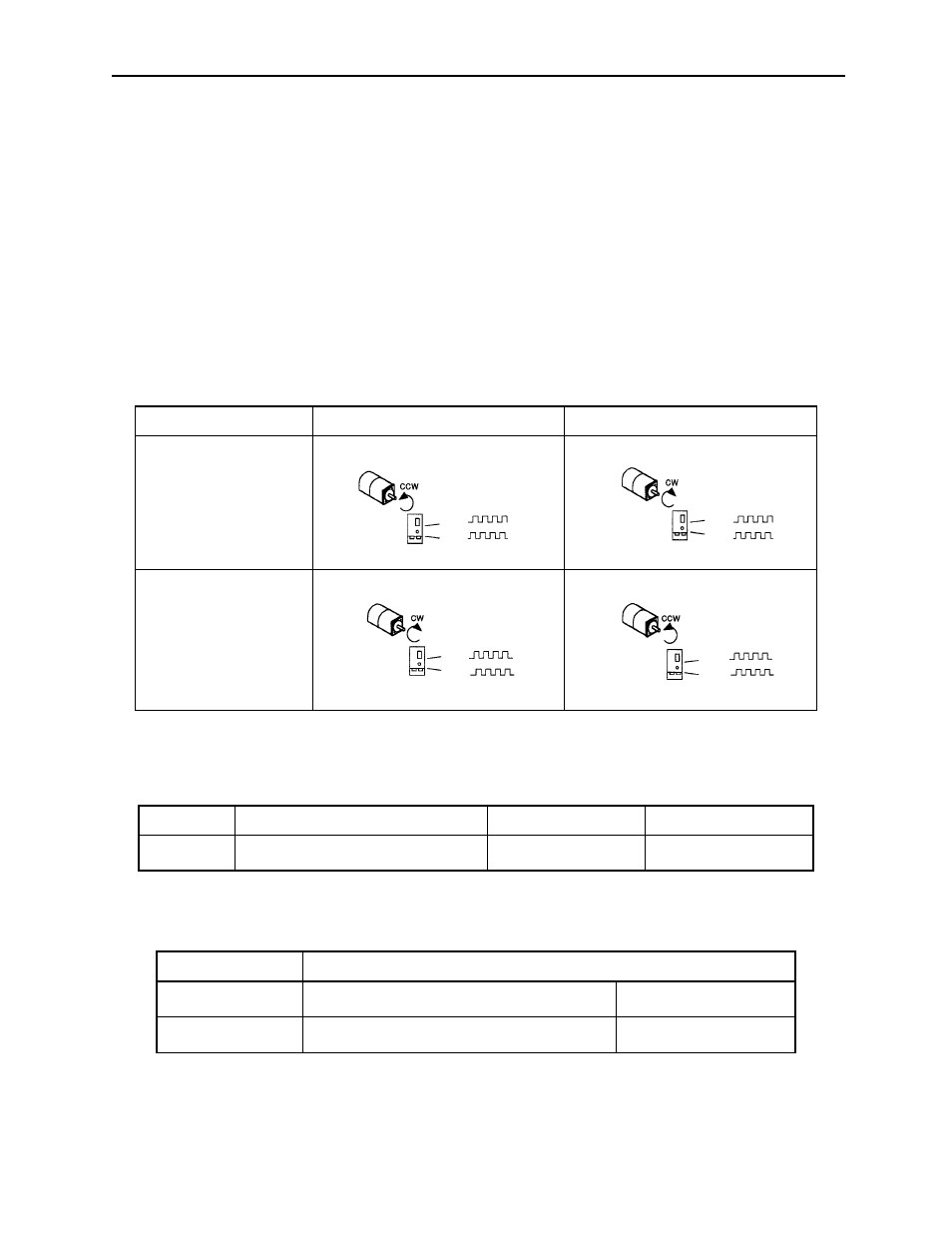1 settings according to device characteristics, 1 switching servomotor rotation direction, 1 settings according to device characteristics - 5 – Yaskawa Sigma II Series Servo System User Manual
Page 91: 1 switching servomotor rotation direction - 5, 1 settings according to device characteristics -5, Switching servomotor rotation direction -5, Setting reverse rotation mode

Sigma II User’s Manual
Chapter 5: Parameter Settings and Functions
5 - 5
5.1 Settings According to Device Characteristics
This section describes the procedure for setting parameters according to the dimensions
and performance characteristics of the equipment used.
5.1.1
Switching Servomotor Rotation Direction
The servo amplifier has a Reverse Rotation Mode that reverses the direction of
servomotor rotation without rewiring. Forward rotation in the standard setting is
defined as counterclockwise as viewed from the load.
With the Reverse Rotation Mode, the direction of servomotor rotation can be
reversed without changing other parameters. Only the direction (+,
−) of shaft
motion is reversed.
Setting Reverse Rotation Mode
Use the parameter Pn000.0.
Use the following settings to select the direction of servomotor rotation.
Standard Setting
Reverse Rotation Mode
Forward Reference
Reverse Reference
Parameter
Signal
Setting
Control Mode
Pn000.0
Direction Selection
Default Setting: 0
Speed/Torque Control,
Position Control
Setting
Description
0
Forward rotation is defined as counterclockwise
(CCW) rotation as viewed from the load.
(Standard setting)
1
Forward rotation is defined as clockwise (CW)
rotation as viewed from the load.
(Reverse Rotation Mode)
Encoder output from
servo amplifier
PAO (Phase A)
PAO (Phase B)
Encoder output from
servo amplifier
PAO (Phase A)
PAO (Phase B)
Encoder output from
servo amplifier
PAO (Phase A)
PAO (Phase B)
Encoder output from
servo amplifier
PAO (Phase A)
PAO (Phase B)